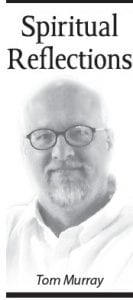In the year 1886, Leo Tolstoy wrote a little-known short story about a peasant farmer named Pakhóm who is possessed by the desire to accumulate land. One day a landowner in a neighboring village offers him an amazing opportunity. For only 1,000 rubles, Pakhóm can buy as much land as he can walk around in a day. As long as he gets back to his starting point by sunset, the entire area that he encircles will be his. But, if he doesn’t get back to his starting point in time he will lose his money and walk away empty handed.
He can’t believe it! This is the bargain of a lifetime. And so, early the next morning he starts out walking as fast as he can. By mid-day he realizes that his craving for more has taken him too far from his starting point, so he walks faster. As the darkness gathers he begins to run. Gasping for breath, he staggers across the line just as the sun disappears. He made it! He is now wealthy beyond his wildest dreams.
Within minutes, he collapses from exhaustion and dies on the spot. The story ends with these words, “His servant picked up his spade and dug a grave long enough for Pakhóm to lie in, and buried him in it. Six feet from his head to his heels was all he needed.”
The title of Tolstoy’s story is How Much Land Does a Man Need?
We live in a culture that is driven by consumerism. Almost every time we turn on our television, or flip through a magazine, or log onto a website, we are told that the one and only goal of this life is to accumulate more…more land, more toys, more influence, more wealth, and more power.
We are told that everything that we possess is less than what it could be. If we work just a little bit harder at life we can own a better car, a faster laptop, a nicer lake view, and a bigger boat. Why settle for less when there is more to be had?
But when we open up scripture, we read that the gospel of Jesus runs completely counter to this culture of self-indulgence. The gospel proclaims that no amount of affluence can bring us closer to God. Jesus repeatedly warns us that greed can easily get in the way of our relationship with him. “Take care,” Jesus says, “Be on your guard against all kinds of greed, for one’s life does not consist in the abundance of possessions.”
The gospel narrative exposes our priorities. It questions how we invest our lives and how we choose to share the many gifts that God has given us. It lays bare our compulsion to look inward and toward our own desires, even as it calls us to look outward and toward God’s mission to bless and redeem this world. Rather than living lives centered on our possessions, we are invited to live abundant lives filled with all of those wonderful things that draw us into relationship with the God who created us.
We are invited to invest in our relationships with one another. We are called to use our many gifts to reach out to the poor and the suffering. We are asked to give of ourselves so that those who have never recognized the love of God in their lives may discover it through our generosity and commitment to them.
The promise of the gospel is that Jesus steps all of the way into our lives to pull us out of the brokenness that we have buried ourselves in. No matter how deep a hole we have dug, God knows us and will leave no stone unturned to find us. His death and resurrection proclaim a new life with God that is centered on faith and discipleship. This is an abundant life filled with love, mercy, forgiveness, peace, joy, hope, commitment, and community.
How much land do we really need? Just enough to be laid to rest in the sure and the certain hope of the resurrection. God’s love and care for us is so enduring that we need nothing else in this life.
Each month a member of the Cook County Ministerium will offer Spiritual Reflections. This month’s s contributor is Tom Murray of the Lutsen and Zion Lutheran Churches.



Loading Comments